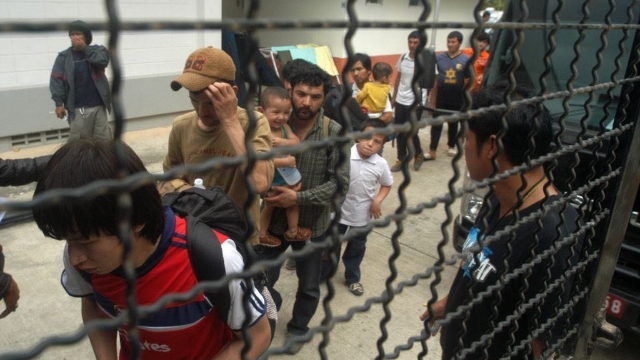UNHCR Denied Aid to Detained Uyghur Asylum Seekers in Thailand
The United Nations High Commissioner for Refugees (UNHCR)
declined offers from the Thai government to assist 48 Uyghur asylum seekers
from China, despite their dire circumstances. Detained in Thailand for over a
decade, these individuals face life-threatening conditions and are denied basic
rights.
The Uyghur asylum seekers, comprising five individuals
serving prison sentences and 43 held without charge, endure sweltering,
unsanitary, and overcrowded conditions in Bangkok’s Suan Phlu immigration
detention center. Barred from communication with family, legal counsel, or
fellow detainees, their plight remains largely hidden from the world.
Thai authorities show no intention of releasing the Uyghurs,
citing a 2023 report by the National Human Rights Commission. However, UNHCR
has consistently cited Thai government restrictions as a barrier to accessing
the group, hindering efforts to grant them refugee status and secure
resettlement.
Behind the scenes, internal documents from as early as 2020
reveal Thailand’s informal appeals to UNHCR for assistance, met with caution
from the agency due to fears of backlash from China. This hesitance underscores
the pervasive influence of China, which extends even to humanitarian agencies
like UNHCR, according to rights advocates.
Despite mounting pressure from rights groups and advocates,
including calls for investigations into deaths among the Uyghur detainees,
UNHCR’s response remains inadequate. The agency claims to advocate for a
humanitarian solution but has failed to take decisive action, leaving the Uyghurs
languishing in detention.
The situation highlights a broader pattern of neglect within
UNHCR, as described by Uyghur asylum seekers in other countries. Reports
indicate difficulties in obtaining refugee status documents and accessing
essential services, reflecting a systemic failure to protect vulnerable
populations.
The urgency of the Uyghurs’ plight cannot be overstated.
With the window for intervention possibly closing and no clear path forward,
advocates emphasize the need for UNHCR to fulfill its mandate and act
decisively. The fate of these individuals cannot be left to geopolitical
considerations or bureaucratic inertia.
Peter Irwin, associate director for research and advocacy at the Uyghur Human Rights Project, urges UNHCR to find alternative solutions despite access limitations. With lives at stake and the current approach yielding no results after a decade of suffering, the time for meaningful action is long overdue.










